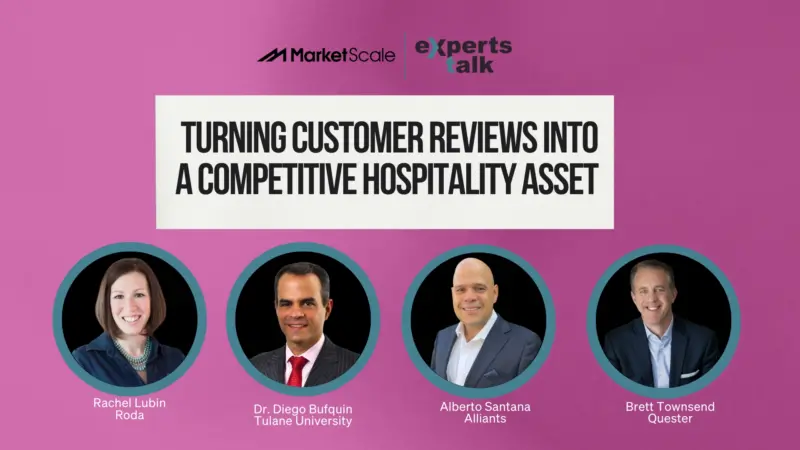All Aboard: How Intuitive PMS Tools are Improving PMS Training and Adoption

A hotel’s property-management system opens operators up to new worlds of potential capabilities, operating strategies, efficiencies, and more.
By Warren Dehan
When it comes time to invest in a new property-management system, independent hoteliers have no need to panic. Such an investment is often daunting financially and operationally, but modern PMS providers skilled at working with independent hoteliers are providing more reliable support and a more robust roadmap for success when onboarding new technology through expanded training tools, support, and an eye for detail.
Independent operators have historically struggled to stay competitive with new technologies, as every minor disruption to their business has far-reaching implications on profitability and long-term success. To avoid unnecessary interruptions and keep operations running smoothly, hoteliers should ask their technology partners some challenging questions before committing any investments.
What are PMS providers doing to simplify the adoption process? What workflows are available to help identify how operations will be carried out over a new system? Does your PMS offer ongoing support to resolve issues in real time? What do other hoteliers say about their technology and its support structure?
Answering these questions is an excellent first step toward understanding your hotel’s commitment to new technology and a technology provider’s commitment to the hotel. Independents cannot afford to leave these questions unanswered until the time comes to test a system. They need the confidence, training, and support to immediately leverage the beneficial technology they are investing in, not over the long term.
Clean Data Migrations
When adopting a new system, independent hoteliers must embrace the opportunity to use clean data or data without incorrect, corrupt, incorrectly formatted, duplicated, or incomplete data within a dataset. Working with clean data empowers hoteliers to start anew without unnecessary or extraneous information bogging down back-end systems. Furthermore, leveraging clean data allows hotels to optimize their booking and marketing analytics while sharpening their forecasting using reliable guest preference, booking, and stay data.
The benefits of operating with a clean dataset are clear thanks to efficient data migration. Hoteliers must meet with PMS providers to understand the mechanics behind their data migration strategy and how they can work together to ensure necessary data is preserved while unnecessary information is left behind. PMS providers must also work with operators to ensure they can easily access the information they need once systems have been changed over. This includes a training component and efficient data management to reduce the room for error when transferring data to a new system.
Another way independent operators can benefit from the modern PMS adoption process is the implementation of multiple instances of the PMS during onboarding. In effect, this allows multiple versions of a new application to exist on property in various states: One for training new staff, one for a production environment, and one for testing new features while disconnected from the rest of the hotel, reducing the impact and risk of errors made during training.
Training and Creating Roles
Multiple instances improve hoteliers’ ability to hit the ground running with new technology by allowing them to experiment with no restrictions – often considered the most crucial aspect of using a new tool. Independent hoteliers should also ask PMS providers if it is possible to maintain multiple instances of a product once the PMS goes live. This strategy allows operators to isolate PMS capabilities to different departments, reducing capabilities for housekeeping and maintenance positions while expanding them for managers.
These options are becoming valuable in a hospitality employment market where roles remain poorly defined. While managers like to say their workers “wear a lot of hats,” today’s employees can find such a casual statement to indicate that the responsibilities of any onsite role have no boundaries. As hotels acclimate to the capabilities of modern technology and their ability to improve operations, it will be necessary for operators – particularly independents – to clarify worker roles clearly and concisely.
When PMS providers can provide multiple access points to one solution, this is preferable to having numerous solutions available for different roles. Training is essential, whether in person, online, through modules, or self-directed learning via support, but it is vital to reduce the potential for workers to be overwhelmed by a new system. For this reason, gating off specific capabilities outside of each role on property can help clarify a worker’s position and help guide their daily focus, led by the capabilities at their fingertips.
Investing in new technology should be exciting, not scary. A hotel’s PMS opens operators up to new worlds of potential capabilities, operating strategies, efficiencies, and more. It’s a PMS provider’s job to help hoteliers acclimate to these capabilities and transform the onboarding process from a hindrance to a gift.
About the Author

Warren Dehan is the President of Maestro, the preferred Web Browser based cloud and on-premises all-in-one PMS solution for independent hotels, luxury resorts, conference centers, vacation rentals, and multi-property groups. Maestro’s enterprise system offers embedded payments and 20+ integrated modules on a single database, including mobile and contact free apps to increase profitability, drive direct bookings, centralize operations, and enable operators to engage guests with a personalized and safe experience. Maestro’s Support Service provides unparalleled 24/7 North American based live support and education services.








